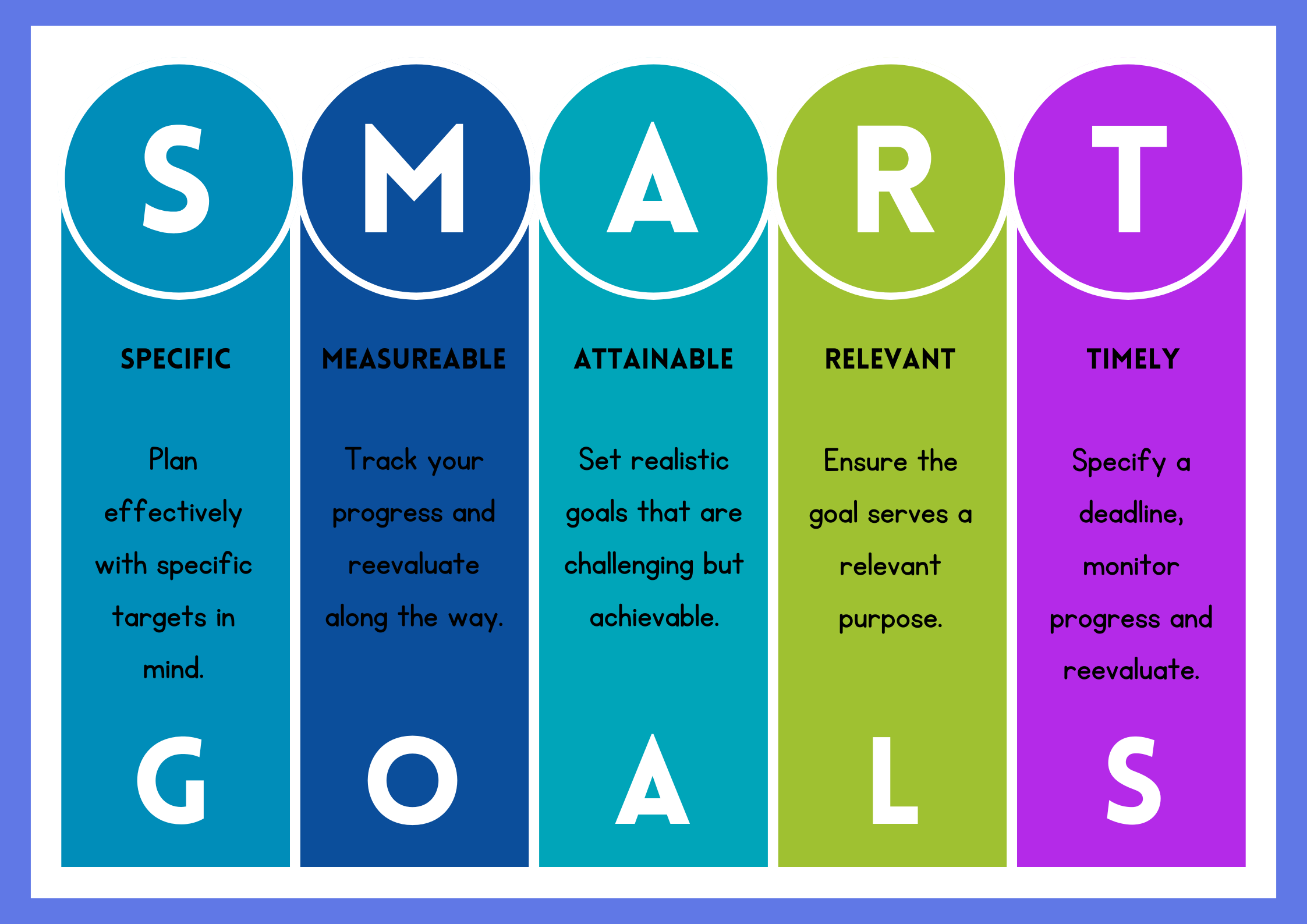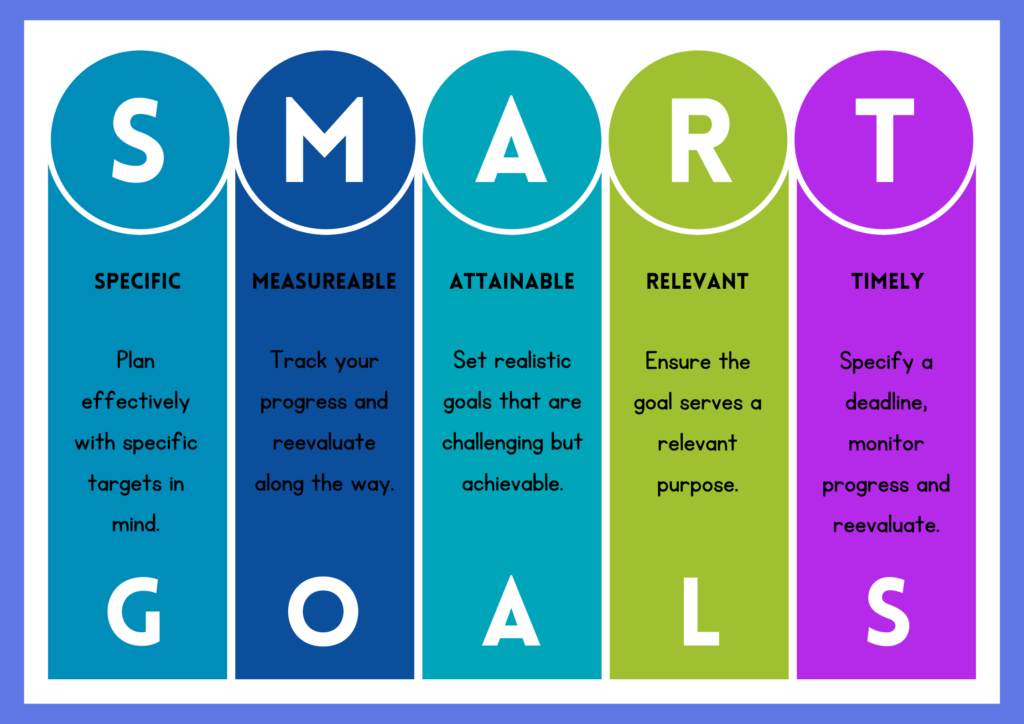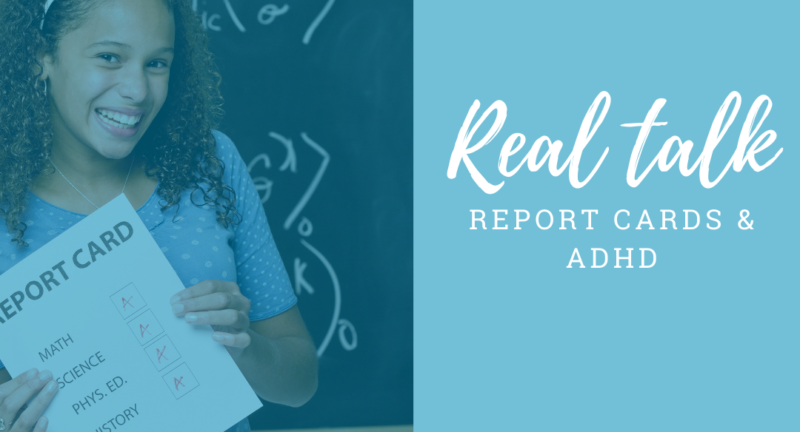
How to Create SMART Goals
Setting goals is a cornerstone practice. But for those navigating the intricate landscape of attention deficit hyperactivity disorder (ADHD), setting and achieving goals can sometimes feel like a daunting task. However, fear not! Crafting smart goals can help you reach your goals. In fact, SMART goals are often incorporated into ADHD coaching plans.
Here’s what you need to now about SMART goals.
Understanding Smart Goals

Smart goals are Specific, Measurable, Achievable, Relevant, and Time-bound. They provide a clear roadmap toward success, ensuring that every step taken is purposeful and aligned with broader aspirations. For individuals with ADHD, this structured approach is particularly beneficial, as it offers clarity and direction.
1. Specific: Define Your Focus
Begin by honing in on a specific area of improvement or aspiration. Instead of setting a broad goal like “exercise more,” try something more defined such as “incorporate 30 minutes of physical activity into my daily routine.” Clarity in your objectives will enhance motivation and streamline your efforts.
2. Measurable: Track Your Progress
To keep momentum and stay accountable, establish measurable criteria for success. Utilize tools like habit-tracking apps or journals to monitor your progress. For instance, if your goal is to read more, set a target number of pages or chapters to complete each week.
3. Achievable: Set Realistic Expectations
While ambition is admirable, setting unrealistic goals can lead to frustration and discouragement. Consider your current circumstances, resources, and capabilities when crafting your goals. Start with small, attainable steps, and gradually increase the challenge as you build confidence and momentum.
4. Relevant: Align with Your Values
Ensure that your goals resonate with your values and long-term objectives. Reflect on what truly matters to you and tailor your goals accordingly. If improving focus and productivity is a priority, setting goals related to time management or organization would be relevant and impactful.
5. Time-bound: Establish Deadlines
Deadlines provide a sense of urgency and prevent procrastination. Set specific timeframes for achieving your goals, whether it’s a daily, weekly, or monthly target. Breaking down larger goals into smaller, time-bound tasks makes them more manageable and increases the likelihood of success.
Holistic Approach: Integrating Coaching and Lifestyle Tips
In addition to the SMART goal framework, incorporating holistic strategies can enhance the effectiveness of goal setting for individuals with ADHD. Here are some tips to consider:
ADHD Coaching:
Working with our certified ADHD coach Pam Valdes, M.A., AACC, can provide invaluable support and guidance in setting and achieving goals. She can help you identify strengths, overcome obstacles, and develop personalized strategies for success.
Lifestyle Adjustments:
Explore lifestyle modifications that complement your ADHD management plan. Prioritize adequate sleep, regular exercise, and a balanced diet to optimize brain function and mood stability. Incorporate mindfulness practices such as meditation or yoga to cultivate focus and reduce stress.
Mindful Self-Compassion:
Be gentle with yourself throughout the goal-setting process. Acknowledge and celebrate your progress, no matter how small. Remember that setbacks are a natural part of growth and offer valuable opportunities for learning and resilience.
Download a SMART Goal Tracker
Once decided to create a SMART goal, write it down! You can use goal-setting apps, or you can download and print a tracker. Here’s a free tracker you can download:
Embrace Your Journey
Creating SMART goals tailored to your unique needs as an individual with ADHD is a powerful step towards holistic wellness. By combining the structured framework of SMART goals with holistic strategies such as coaching and lifestyle adjustments, you can unlock your full potential and thrive in all aspects of life. Remember, the journey towards self-improvement is not always linear, but with patience, perseverance, and a sprinkle of self-compassion, you can navigate the path with confidence and resilience.
Ready to learn more? Click here to schedule an appointment in our Louisville, Kentucky office.
Related Posts
What to Do If ADHD Is Impacting Your Child’s Report Card
It's no surprise that having ADHD can be challenging for adults. There...
A Better Way to Treat ADHD
Generally speaking, ADHD is expensive. A recent article published by Additude...


